- Home
- slideshows
- miscellaneous
- I drove a $70,000 Lincoln Aviator Grand Touring to see if this suave SUV could serve up some plug-in hybrid power - here's the verdict
I drove a $70,000 Lincoln Aviator Grand Touring to see if this suave SUV could serve up some plug-in hybrid power - here's the verdict
I picked up my Lincoln Aviator tester near Los Angeles International airport. It was an all-new, 2020 Aviator GT hybrid. The SUV starts a little north of $50,000, but my well-equipped version, although officially not for sale, probably tipped the cost scales at more than $70,000.

Because I was in LA for the annual auto show, a rite of autumn, I had the chance to test the cargo capacity of this three-row hauler right away. With the third row deployed, there was a goodly amount of space for my luggage.
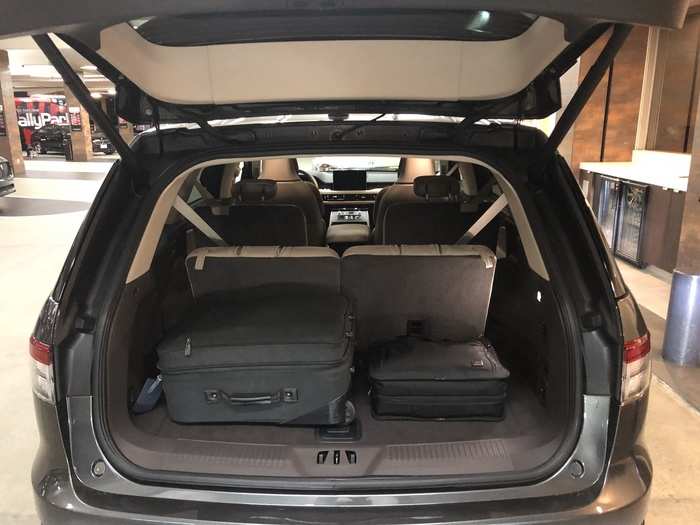
During several days of testing, I squired the Aviator around LA. In Venice, we stopped at Frank Gehry's famous "Binoculars Building," with the iconic Claes Oldenburg and Coosje van Bruggen sculpture outside.
The Aviator is an extremely nice-looking midsize SUV, embodying what Lincoln calls its "quiet flight" brand philosophy, which combines seafaring and airborne motifs.
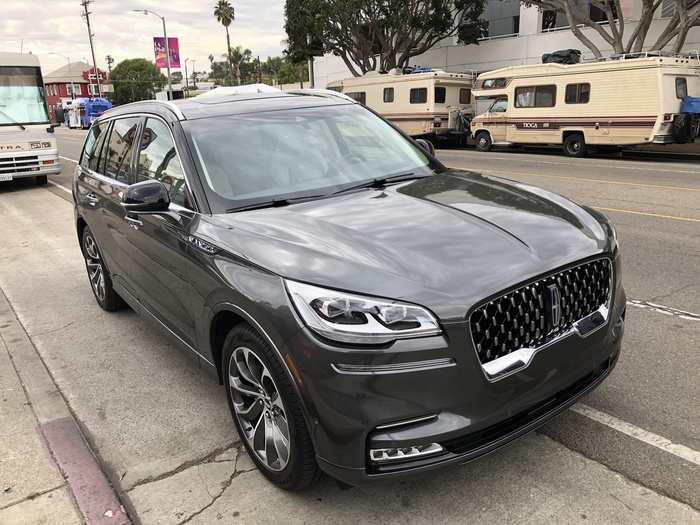
The Aviator's "Magnetic Gray Metallic" paint job added a stately aspect to the sort of vaguely steampunk aesthetic.
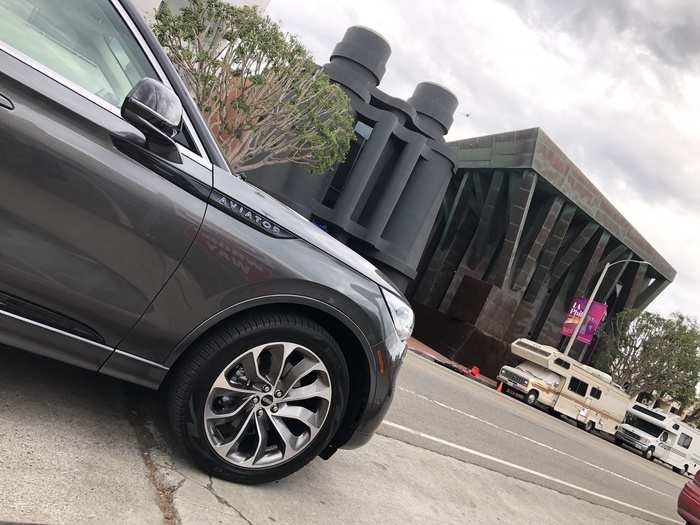
The Aviator nameplate, rendered in a distinctive blue color and a sans serif typeface, add to the Jazz Age vibe.

This isn't a small SUV, to be sure, but with dashing character lines and a sloping roof, it comes off as almost sleek.
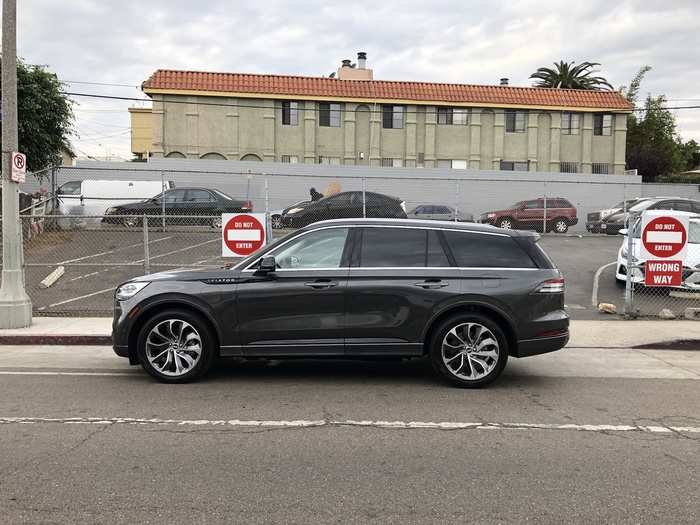
Meanwhile, the front fascia means business.
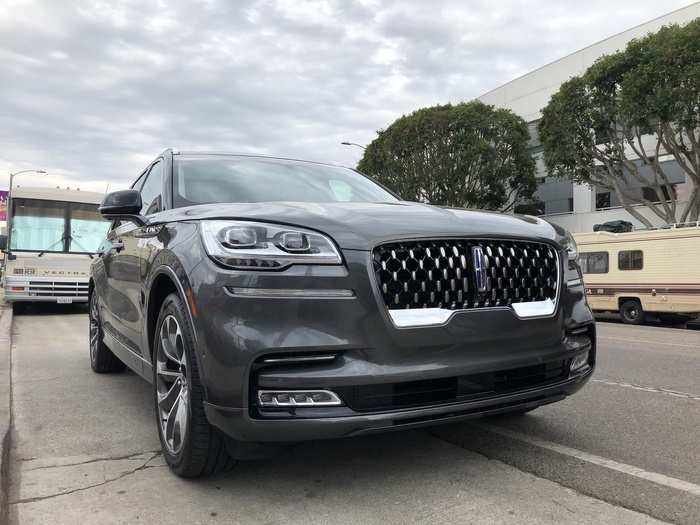
The grille is "Dark Smoke Chrome," and it's lovely. The Lincoln badge is proud and prominent. Under the hood is a 3.0-liter V6, mated to a smooth 10-speed automatic transmission.
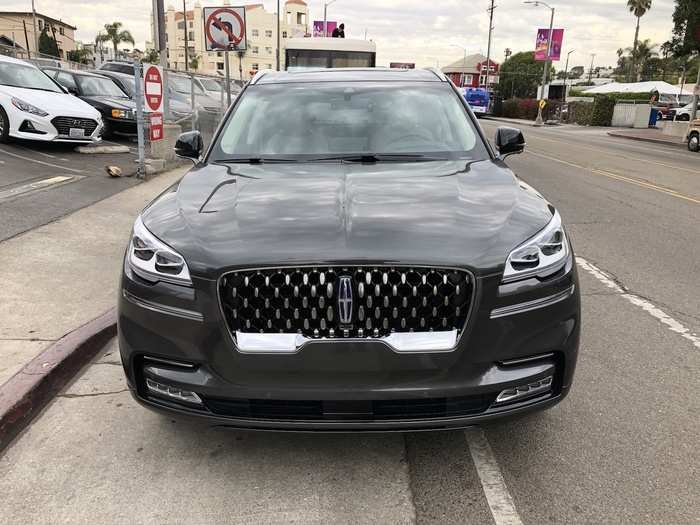
The LED headlights are encased in angled pods.
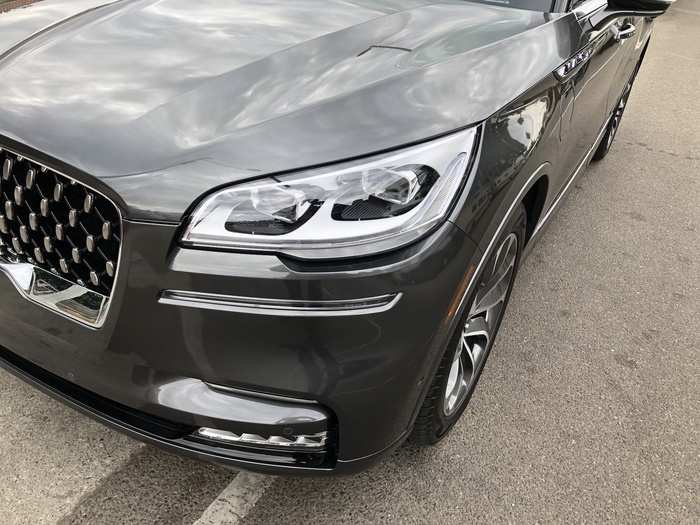
Even from the rear, the Aviator presents a sharp appearance — and that's the toughest trick for an SUV to pull off.
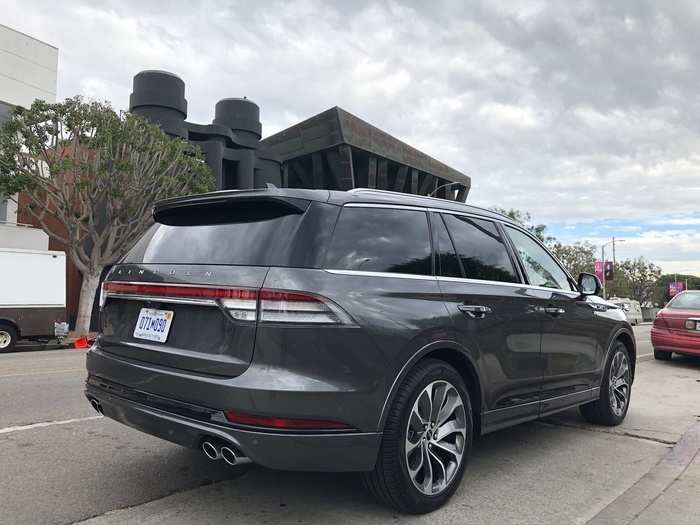
Lincoln is in the midst of a robust revival. The Aviator is among the latest in a new lineup of SUVs.
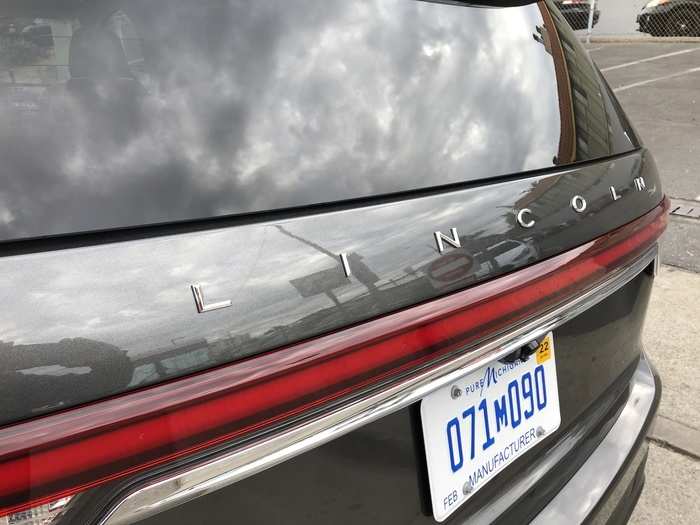
My tester came with premium 21-inch machined aluminum wheels. They're gorgeous, but ... I'd go aftermarket and get 22s.
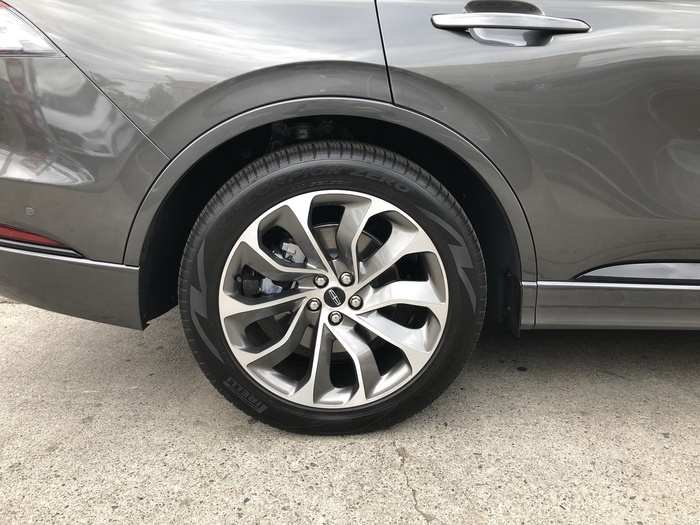
We live in the golden age of mega-sunroofs — or in this case, "panoramic vista roofs."

Lincoln's seats are something else. Covered in "Sandstone" for my Aviator, they're 12-way-adjustable up front, and heated and cooled.
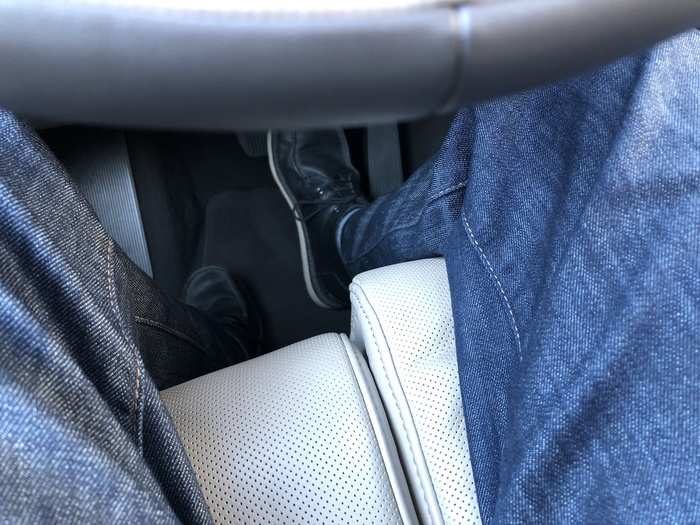
Second-row legroom is quite good for a midsize SUV.
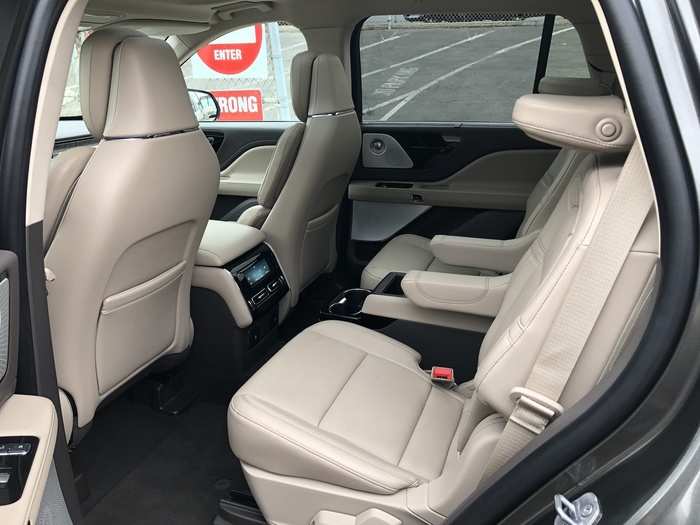
The Aviator's rear seats also have their own climate and infotainment controls.
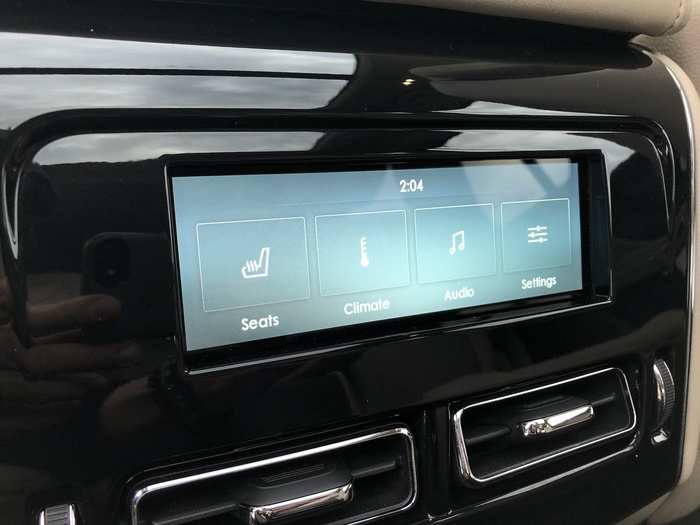
The third row, while snug, is actually rather luxurious.

My tester's multifunction steering wheel was leather-wrapped and two-tone.
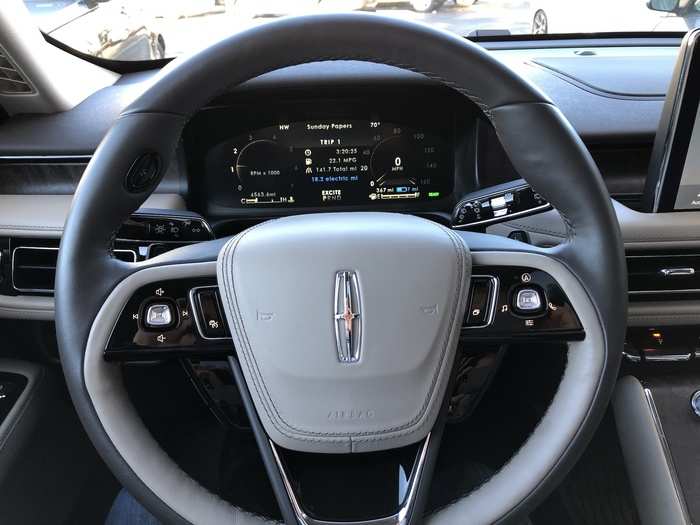
THIS IS A GOOD IDEA! Put the voice-interface button right on the wheel.
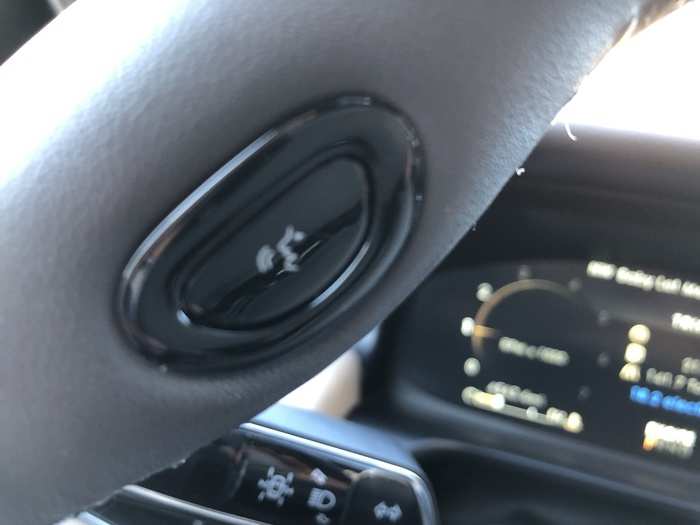
The climate controls are straightforward, and the piano-key shifter sits right above.
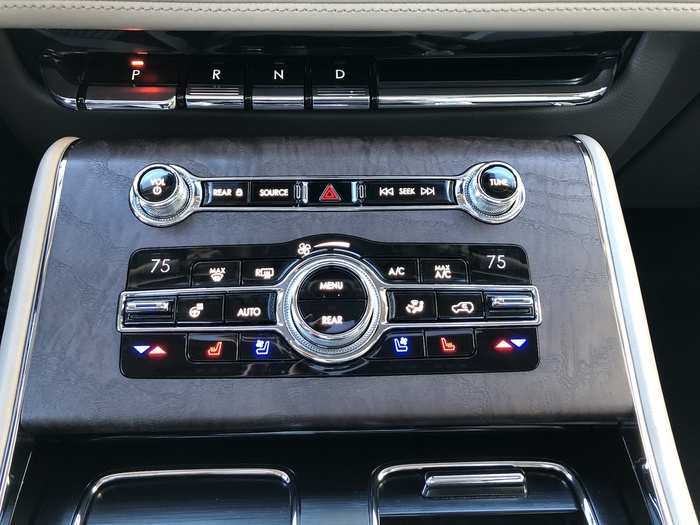
The wood-grain trim is beautiful, and the drive-selector is easy to find.
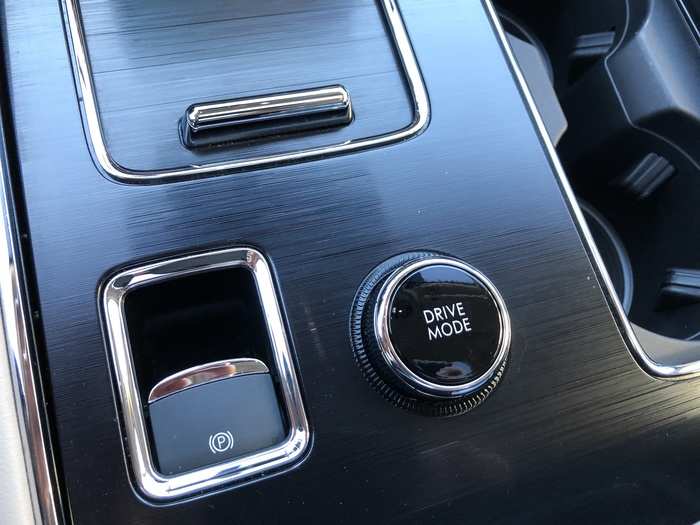
The infotainment system runs on a reasonably large central touchscreen and uses Lincoln/Ford's SYNC 3 setup. It does everything well, from Bluetooth device pairing to GPS navigation.
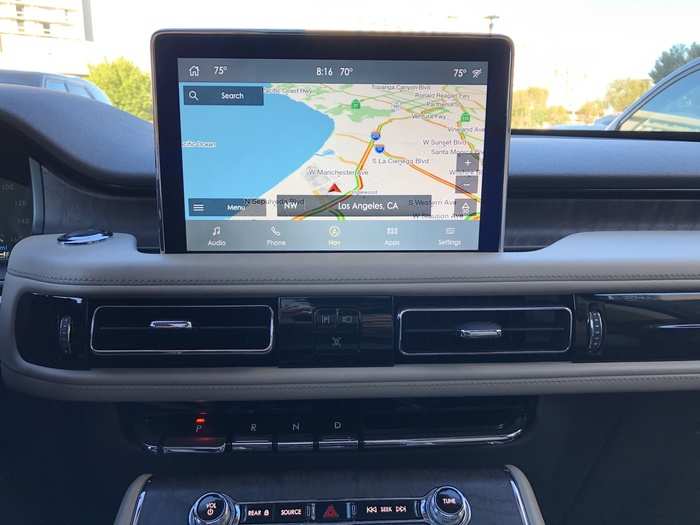
The wood trim is subtle, in keeping with Lincoln's whisper-rather-than-shout values.
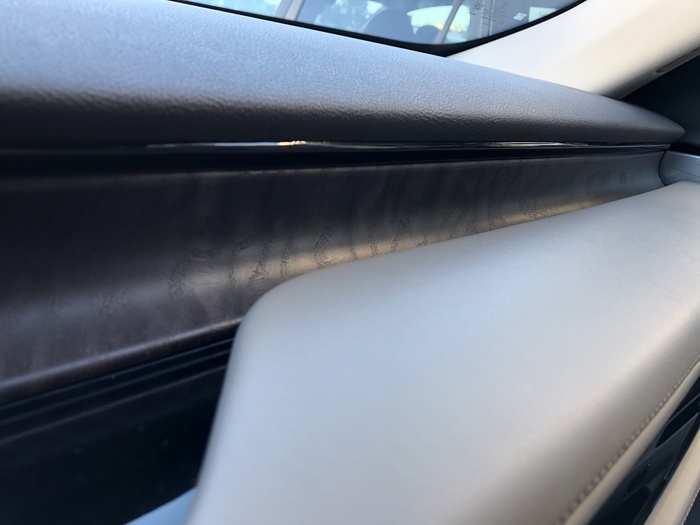
Drive modes are artfully indicated with animations, sort of like performance GIFs.
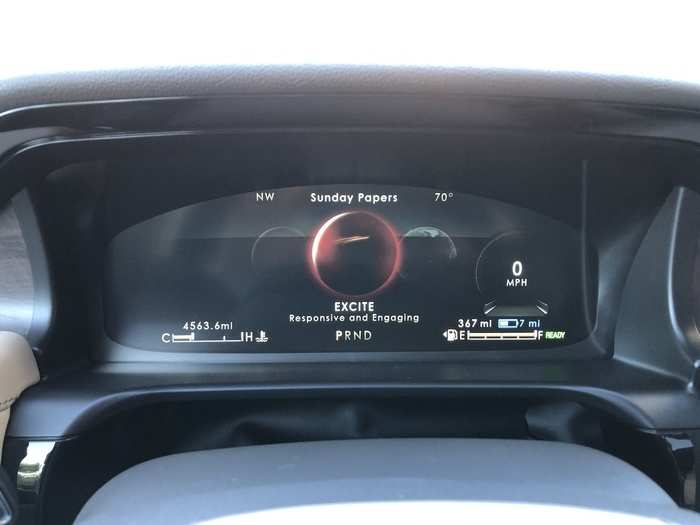
They really are attractive, soothing, and they fit nicely into the zen-like cluster design that Lincoln has created.
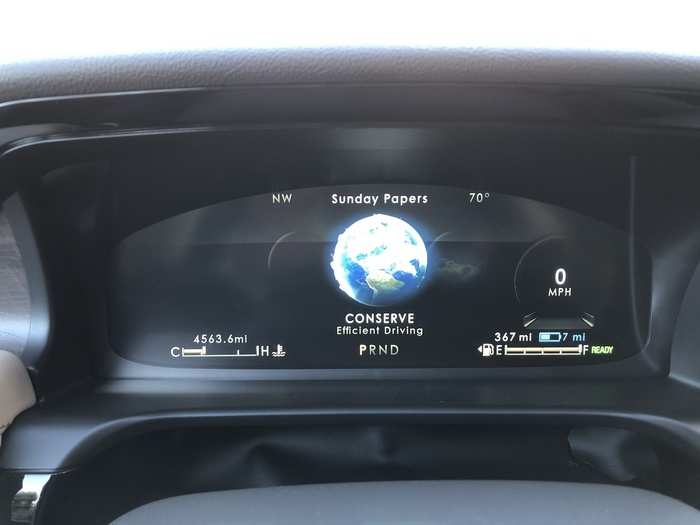
The drive modes are "Normal," "Conserve," "Excite," "Slippery" and "Deep Conditions." In LA, I used four of the five. I guess if I'd driven on the beach I could have used "Deep Conditions."
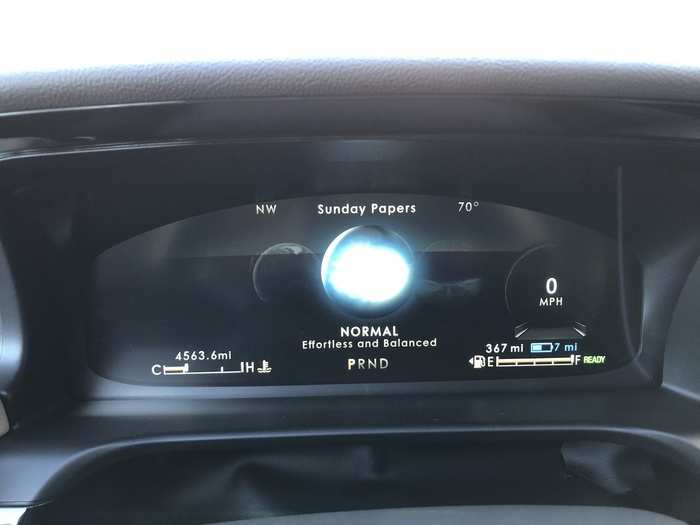
Yes, I even used "Slippery," as my visit coincided with a typical one-day LA downpour.
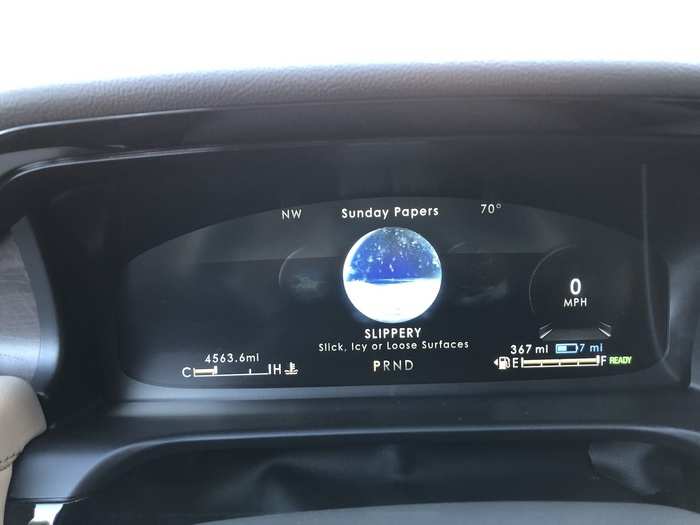
What's this? A Lincoln Aviator you can plug in?
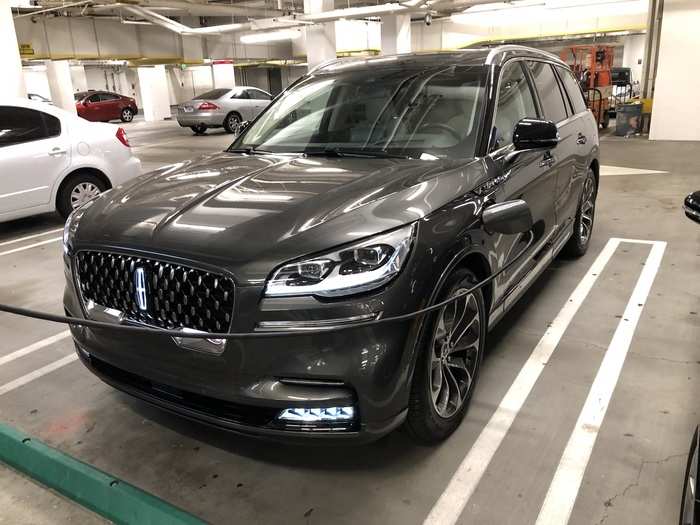
Yep, the Aviator GT is a plug-in hybrid, with a 75-kilowatt-hour battery that adds about 20 miles of all-electric range.
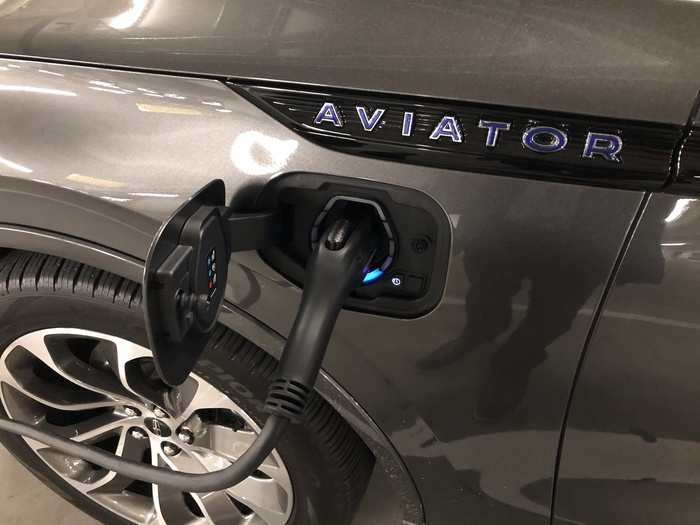
Luckily, the parking structure I like to use in downtown LA has ChargePoint locations, and I have an account.
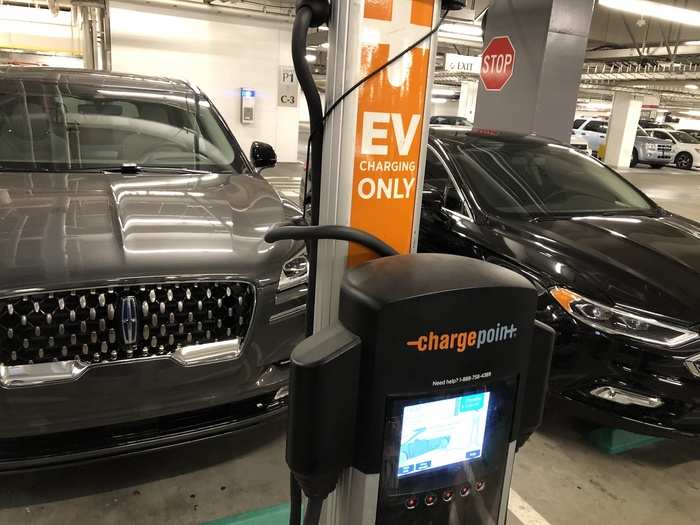
I re-juiced the Aviator twice, and each time it took about six hours to go from zero to full.
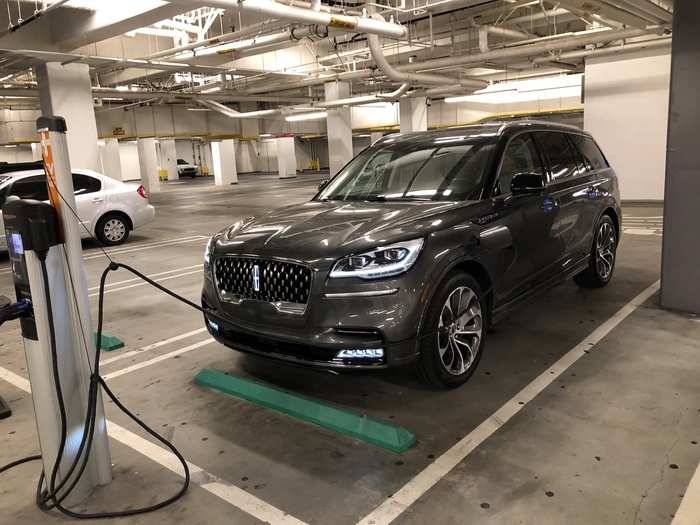
So what's the verdict on the 2020 Lincoln Aviator?
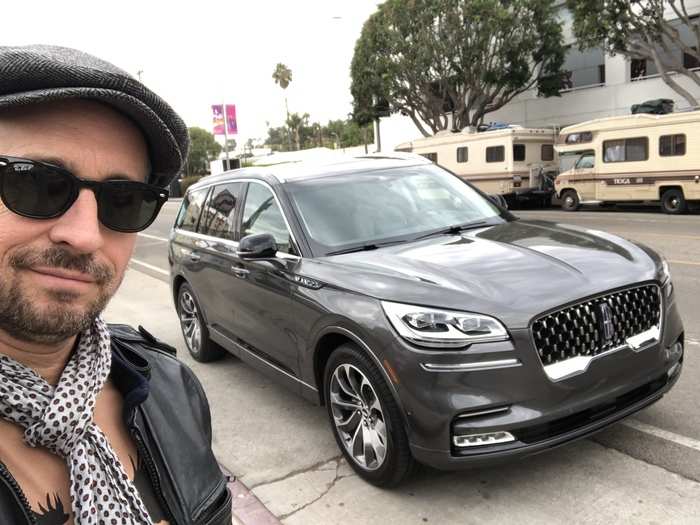
LA was not the greatest place to test the Aviator's all-wheel-drive system, and I had no passengers during the few days I spent behind the wheel.
But LA was a dandy place to test the abundant interior comfort and the glorious, 14-speaker Revel audio system while sitting in traffic on the 405, the 10, the 110, the 105 and assorted surface streets.
I was also able to tap into the combined 494 horsepower and 630 pound-feet of torque produced by the Aviators potent powerplant and ... WHOA-LY SCHMOKES!!!
This thing really goes! On electric power alone, the Aviator has some tasty pep, but when this SUV is in Excite mode and you put the hammer down, it wants to pop a wheelie as you merge with City of Angels traffic. It's like there is a Mustang GT V8 under the hood.
Nothing else I've driven in the segment feels quite the same. The Aviator is supposed to be suave, but it's kinda wild. I hope the new Aston Martin DBX SUV can manage this stunt.
My tester was crammed with driver-alert and -assist features, but I was having so much fun driving the Aviator myself that I barely used them. They worked fine. (For the record, LA is a difficult area in which to use these systems anyway, given the mix of congested freeway driving and sprawling surface-street navigation.)
The bottom line is that the Lincoln Aviator looks great, drives great, has great tech, is great for passengers and cargo, and even gives you something in the ballpark of 20 mpg in combined city/highway, which isn't bad. The hybrid system is great at boosting the V6 into V8 territory, even if 20 miles of EV range isn't all that useful in real life.
The word, then, is great to describe the Lincoln Aviator. There's nothing to complain about, and quite a few things to unabashedly praise.
Popular Right Now
Popular Keywords
Advertisement